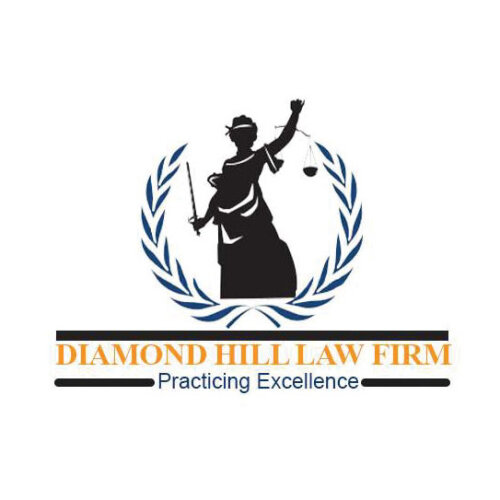Best Transportation Lawyers in Cameroon
Share your needs with us, get contacted by law firms.
Free. Takes 2 min.
Or refine your search by selecting a city:
List of the best lawyers in Cameroon
Legal guides written by CHI & Partners Law Firm:
- Ship Registration in Cameroon
About Transportation Law in Cameroon
The Transportation Law of Cameroon is a comprehensive framework designed to manage and regulate transportation activities in the country. This includes land, sea, and air transportation. The law covers a broad spectrum of areas such as road safety, compliance standards, transportation contract law, freight forwarding and brokerage law, the licensing of public and private transport operators, and the responsibilities and obligations of transport operators. It also caters to legal matters related to accidents, violations, penalties, and navigational laws in Cameroon. The combination of national legislation, international treaties, and customary practices shapes how transportation operates in Cameroon.
Why You May Need a Lawyer
Transportation law can be complex and often needs specialist knowledge for accurate interpretation. You may require a lawyer under several circumstances such as if you are getting involved in commercial transportation activities, establishing a transportation company, or facing possible legal action for violation of transportation laws. It may also be if you have suffered losses due to a breach of a transportation contract or seeking compensation for accidents and injuries related to transportation. Furthermore, understanding regulations related to import, export, shipping, and customs also need expert advice.
Local Laws Overview
Cameroon's local transportation laws are particularly focused on public safety, environmental protection, fair trade practices, labour rights, and operational standards. There are stringent rules for obtaining operational licenses, with regular checks carried out by the authorities to ensure compliance. The country has strict road safety laws that outline the responsibilities of road users and penalties for violations. Environmental laws regulate emissions from vehicles, noise pollution, and disposal of waste in the industry. Labour laws in the sector protect the rights of transportation workers and outline the responsibilities of employers. Laws are also in place to safeguard consumer rights, with regulations in place for contractual agreements, terms and conditions, and dispute resolution in the transportation industry.
Frequently Asked Questions
1. Who oversees transportation law in Cameroon?
Several government bodies oversee different aspects of transportation in Cameroon. The Ministry of Transport is primarily responsible for policy-making and regulatory oversight. Local departments and a variety of agencies handle specific areas of the sector.
2. What are the consequences of violating transportation laws in Cameroon?
Violations of transportation laws can attract a range of penalties, including fines, revocation of licenses, and in serious cases, imprisonment.
3. What role does international law play in Cameroon's transportation sector?
As Cameroon is a signatory to numerous international treaties and conventions, international law has significant influence on the country's transportation sector. This includes safety standards, environmental regulation, and practices like maritime law and aviation law.
4. Can I file a lawsuit against a transportation operator if I have been injured in an accident?
Yes, according to Cameroon's laws, you can seek legal remedy if you've been injured in a transportation accident. You should seek legal advice to better understand your rights and the process involved.
5. What is the process for setting up a transportation business in Cameroon?
The process involves obtaining necessary licenses and meeting specific regulatory requirements. It's recommended to consult with a lawyer knowledgeable in Cameroon's transportation law for assistance.
6. What are my rights as a consumer in the transportation sector?
As a consumer, you have the right to safe and reliable transportation services. Any service provider misconduct can be reported to the relevant authorities for necessary action.
Additional Resources
Certain government bodies like the Ministry of Transport and various local departments could provide valuable information and resources regarding transportation law in Cameroon. Additionally, several non-profit organizations, public interest groups, and legal clinics offer advice on transportation law and related issues.
Next Steps
If you require legal assistance or advice related to Cameroon's transportation law, it's best to consult with a professional lawyer who specializes in this field. You should prepare all relevant documentation and a chronological account of your case before the consultation for a smooth and efficient legal process. It may also be beneficial to conduct basic research to improve your understanding of the legal issues you're facing and possible options you have.
Lawzana helps you find the best lawyers and law firms in Cameroon through a curated and pre-screened list of qualified legal professionals. Our platform offers rankings and detailed profiles of attorneys and law firms, allowing you to compare based on practice areas, including Transportation, experience, and client feedback.
Each profile includes a description of the firm's areas of practice, client reviews, team members and partners, year of establishment, spoken languages, office locations, contact information, social media presence, and any published articles or resources. Most firms on our platform speak English and are experienced in both local and international legal matters.
Get a quote from top-rated law firms in Cameroon — quickly, securely, and without unnecessary hassle.
Disclaimer:
The information provided on this page is for general informational purposes only and does not constitute legal advice. While we strive to ensure the accuracy and relevance of the content, legal information may change over time, and interpretations of the law can vary. You should always consult with a qualified legal professional for advice specific to your situation.
We disclaim all liability for actions taken or not taken based on the content of this page. If you believe any information is incorrect or outdated, please contact us, and we will review and update it where appropriate.
Browse transportation law firms by city in Cameroon
Refine your search by selecting a city.












